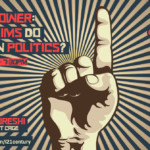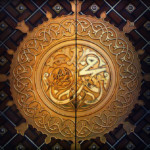August 29th 2022 marks 56 years since Syed Qutb, the great Egyptian Muslim thinker, was hanged by the regime of Jamal Abdel Nasser.
Syed Qutb was born in October, 1906 in the Egyptian town of Musha. Here, he memorised the Qur’ān at the age of 10, before relocating to Cairo and earning a degree in Literature. Qutb devoted himself to authorship and literature. From a young age he would amass books and scholarly work and borrow from shopkeepers when he could not afford them.
Later on in his life, he was awarded a scholarship to study in the United States. There, after a period of self-reflection and inner reformation from previous convictions, he found peace and contentment with Islām. His experience in the US created in his conscious a wholesome understanding of the manifestations of Secularism and materialism, now evident before his eyes, and was of the strongest forces of influence in inclining his heart towards Islām.
He argued that the Shari’ah is the most complete system that extends into all aspects of life and would bring every kind of benefit to humanity, including personal and social peace, and unlock the treasures of the universe.[1] He believed the Shari’ah to be the only adequate basis for political governance and powerfully refuted the popular ideology of Arab nationalism.
Qutb published his first major theoretical Islamic work ‘Social Justice in Islām’ in 1949. Other of his works include ‘in the Shade of the Qur’ān’, ‘Scenes of the Day of Judgement in the Qur’ān’, ‘Milestones’ amongst many others. They are read and benefited from by millions across the world to this day.
Qutb’s struggle and journey led him to conclude Nasser’s government was just another proponent of anti-Islamic thought and Secularism. Rather than an advocator of divine authority, it was just another assisted by western imperialism and driven by remnants of colonialism. Qutb settled on becoming one of the most important inspirers of Islamic political activism in Egypt and across the world, and of the most famous theologians and thinkers in contemporary history.
14 years before the hanging, Qutb delivered an address at a military parade attended by Abdel Nasser himself, celebrating the fall of the Egyptian Monarchy. Here, addressing the audience, Qutb said:
“We cannot praise the revolution, because it has not achieved anything noteworthy. The ouster of the king was not the aim of the revolution, rather its aim is to return the country to Islām […] I was prepared for imprisonment during the period of the [Egyptian] monarchy… and today I am also prepared for imprisonment and for other than imprisonment, even more than before.”
To this Abdel Nasser replied: “My older brother Syed, by Allāh they will not reach you except on our lifeless bodies!”
Just 14 years later, what Qutb envisaged became a reality, and he was executed at the hands of his ‘students’; the ‘Officers of the July Revolution’ against Egypt’s monarchy.
Qutb preferred death and torture to renouncing what he had declared. It is to him that the powerful and profound statement is attributed,
“The finger that testifies that there is no God but Allāh refuses to testify to other than Him.”
As a result of his commitment, he was promptly hanged.
Many have since criticised Syed Qutb and accused him of being the inspirer of ‘Takfiri’ thought, or that which encourages excommunication of individuals and the like. Though, almost every time, and much like other notable theologians of the past, his works are segmented, extracted without textual or political context or outright fabricated. Many have likewise overlooked his extraordinary contribution to Islamic thought, reformation, literature and revolutionary sentiment for which he paid the cost with his own life.[2]
In a response to a question regarding, Syed Qutb, Shaykh Abdullah ibn Abdulrahman ibn Jibreen, a Saudi-based scholar who was a member of the Council of Senior Scholars and Permanent Committee for Islamic Research and Fatwa stated;
“Both (Syed Qutb and al Hassan al-Banna) were Duʿāt (callers) to Allāh, and have displayed patience and perseverance more than many others. Both of them were patient in the face of being killed, having been killed unjustly without abdicating what they called towards. It was later that certain individuals emerged who insulted them and picked out their mistakes, classifying them as ‘misguided’, ‘callers to misguidance’, and disbelievers, outside the fold of Islām. It is an obligation upon a Muslim to recognise the people of good, indicating where they made mistakes and errors, whilst not disavowing the good of those who do good, nor denying the status and benefit of scholars. For, these scholars from the Muslim Brotherhood (Ikhwanul Muslimoon), have dignified stances that many who came after will never be able to match. This is despite them having made mistakes in Ijtihād for which they are excused.”[3]
In the life of the Sheikh al-Albany written by Mohammed Al Shaibani, Sheikh al-Albany is quoted to have said,
“It is in the words of Syed Qutb (raḥimahu Allāhu) and in some of his articles that the researcher may feel that he was excessively enthusiastic, in his attempts to clarify to the reader. He may be justified by the fact that he used to write in (particular) literary style […] In some of the matters of Fiqh, like his discussion on the right of workers in his book “Social Justice” he writes about Tawhid with strong words, some that (go about) reviving the religious confidence and faith in the hearts of the believers. In this regard, he may have in fact renewed the call of Islam in the hearts of the youth…”
We ask that Allāh (subḥānahu wa taʿālā) grants Syed Qutb (raḥimahu Allāhu) and all those who were killed unjustly Jannat al-Firdaus and that He brings about much greater good for their people in this world and the next.
[donationbanner]
Source: www.islam21c.com
Notes:
[1] Milestones: ‘Ma’aalim fee al Tareeq
[2] http://www.aljazeera.net/knowledgegate/opinions/2016/8/30/%D8%B3%D9%8A%D8%AF-%D9%82%D8%B7%D8%A8-%D8%B0%D9%84%D9%83-%D8%A7%D9%84%D9%85%D8%B8%D9%84%D9%88%D9%85










JAK he is a personality that definitely does not get his just due especially in English speaking circles